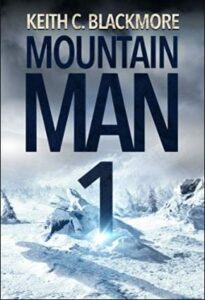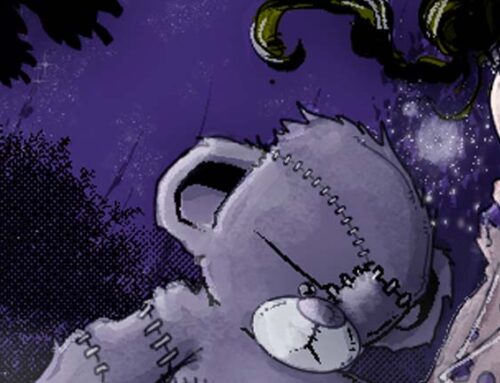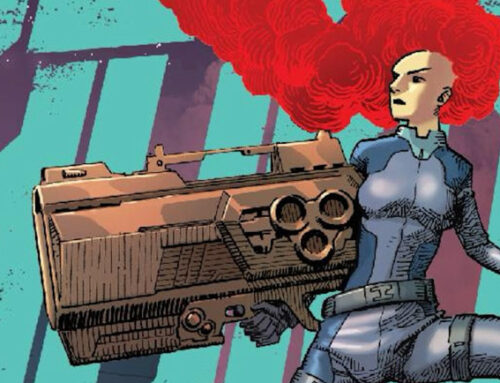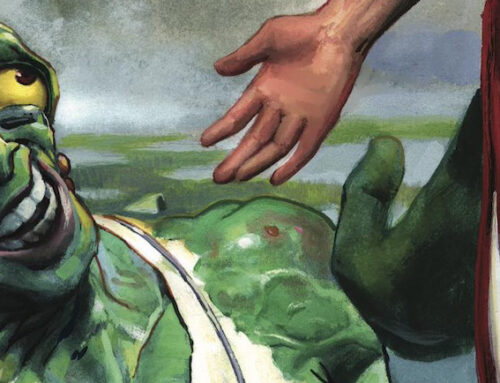It really  sucks that zombies have been beaten back into the ground they rose from across the entirety of horror media for the last decade and a half or so. I’m sure there are legions of people who still adore shambling, rotting corpses, but at this point, it’s really hard to ignore the oversaturation of zombie content, especially for long-time horror readers who have experienced almost every flavor of zombie apocalypse. Unfortunately, this often makes it difficult for traditional zombie novels like Keith C. Blackmore’s Mountain Man to feel fresh or distinguish themselves from the pack. There are high points, but with ten years of zombie media between the release of this first book in the series and today, it’s difficult to return to what is mostly a conventional tale of the undead.
sucks that zombies have been beaten back into the ground they rose from across the entirety of horror media for the last decade and a half or so. I’m sure there are legions of people who still adore shambling, rotting corpses, but at this point, it’s really hard to ignore the oversaturation of zombie content, especially for long-time horror readers who have experienced almost every flavor of zombie apocalypse. Unfortunately, this often makes it difficult for traditional zombie novels like Keith C. Blackmore’s Mountain Man to feel fresh or distinguish themselves from the pack. There are high points, but with ten years of zombie media between the release of this first book in the series and today, it’s difficult to return to what is mostly a conventional tale of the undead.
Mountain Man follows Gus, an everyman who has pulled together an oasis in the mountains above Annapolis over the two years or so since the world was overrun with the dead. Gus’ home is complete with huge stockpiles of food, a seemingly endless supply of booze, and renewable power thanks to a self-contained solar battery system on the property. Gus drinks, scavenges supplies, drinks, reinforces his home, and drinks some more in a spiraling cycle of alcoholism and depression until he stumbles upon Scott, another survivor who has been shot and left for dead in Annapolis. The majority of the book sees the pair preparing for the oncoming winter, which will all but strand them up the mountain and so requires heaps of supplies and planning.
While the majority of the book is standard survival horror fare, there are a few bits and pieces that save Mountain Man from being too predictable. It’s nice to see a zombie story that takes place far after the initial infection and collapse of society, in a world where the very few remaining humans have already become at least passingly competent. At this point, the beginning of a zombie apocalypse is a lot like a superhero origin story– it’s an often unnecessary retelling used as a lazy framing device, so it’s easy to appreciate its absence.
The setting is also a highlight, as it’s usually more fun to read (or in my case to hear) about Gus’ weirdly fortuitous home than it is to read about scavenging trips into the city. The strange but often realistic habits and ramblings that happen on the mountain are usually just more interesting and engaging than when our protagonists are moving house to house dispatching a zombie here and there. It’s rare that a zombie novel gives its characters plenty of respite and time to reflect, so it lets us see sides of these characters we would only get in passing in any other book.
Finally, I did appreciate that the author takes a lot more time than expected to incorporate trauma and real human tendencies into his characters. It would be easy to write Gus as some prior military badass who expertly dispatches the undead, or to give Scott a past life as a law enforcement officer that hardens the characters, and there are plenty of writers who do just that with their main characters. Instead, these guys are bakers and house painters, and they react to sudden life or death situations like people with normal backgrounds would– they’re usually scared shitless (literally, in a couple of instances) and they can’t fend off more than a few shamblers at a time.
Still, these just aren’t big enough changes to make the whole thing feel new, which is why I’d recommend Mountain Man primarily to people who haven’t dug through a lot of zombie media or those who are deeply committed to the undead. Do keep in mind that there are now six novels in the series, so the likelihood that the story does eventually branch out and do its own thing seems incredibly high. If you’re on the fence and looking for something gritty and tense, you could do much worse.
Rating 6.5 out of 10 Soiled Suitcases







